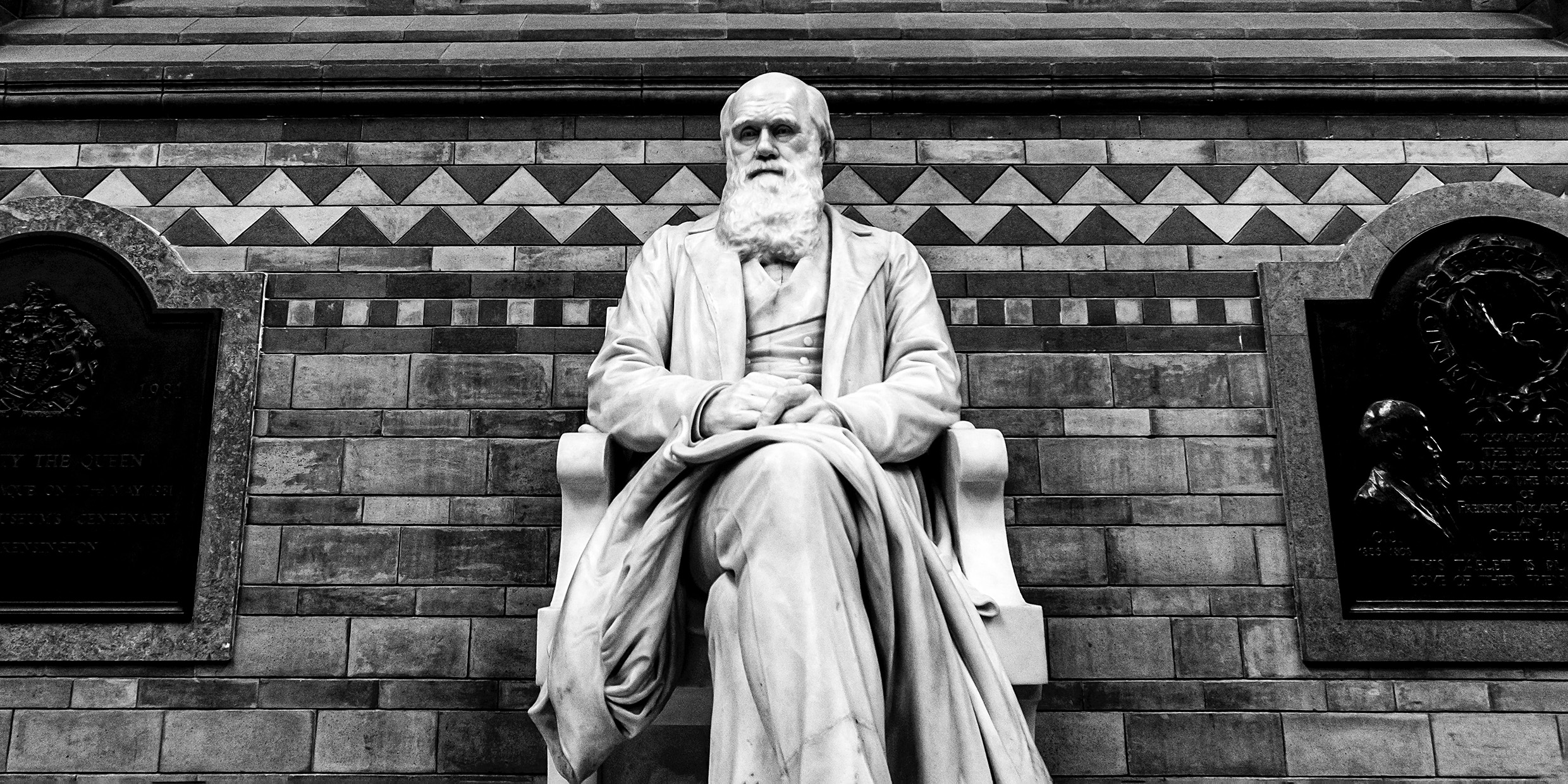Originally published 22 April 1996
“In a child’s power to master the multiplication tables there is more sanctity than in all your shouted amens and holy holies and hosannas.”
Remember that line from Stanley Kramer’s 1960 film Inherit the Wind, which re-created the famous Tennessee “Monkey Trial?” It is spoken in impassioned courtroom debate by Spencer Tracy, playing Henry Drummond, the film’s fictional stand-in for real-life defense attorney Clarence Darrow.
“An idea is a greater monument than a cathedral,” continues Tracy, with fierce conviction. “And the advance of man’s knowledge is a greater miracle than all the sticks turned to snakes or the parting of the waters.”
In the spring of 1925, the Tennessee state legislature passed a law forbidding the teaching in public schools of “any theory which denies the story of the Divine creation of man as taught in the Bible” or “that man is descended from a lower form of animals.”
John Scopes, a young teacher of biology in the Dayton high school, defied the law by teaching Darwinian evolution, and was brought to trial. The prosecution was assisted by William Jennings Bryan, eminent lawyer-politician and three-time candidate for president. Scopes was defended by Clarence Darrow, the country’s best-known criminal attorney.
In an unusual move, Byran took the stand as an expert witness on the Bible. In his cross-examination, Darrow revealed Bryan’s complete lack of scientific knowledge. The trial roused nationwide ridicule. Nevertheless, Scopes was found guilty and fined $100. Bryan died five days later. In 1927, the state appellate court overturned the verdict.
Now, in 1996, Tennessee legislators have again debated a law that would make it a criminal offense to teach evolution as “fact.” Fortunately, the bill was defeated in the state senate.
The proposed ban on teaching evolution as “fact” parallels attempts by the Christian right to have schools teach the biblical version of creation as “science.”
There are some fundamental misapprehensions at work here.
First, there is the supposed opposition of “fact” and “theory.” Scientists speak of any group of related assertions about the world as a “theory.” Some theories are firmly held, such as the atomic theory of matter, so firmly held that atoms are spoken of as facts. Other theories are highly speculative, such as the theory that quasars are black holes forming at the centers of galaxies in the early universe. Astronomers would be cautious calling galactic black holes “facts.”
There is much about evolution that scientists would call 99.9 percent fact, such as the idea that life developed on this planet over hundreds of millions of years from simple beginnings.
There is much about evolution that remains speculative, including the pace of change and the sufficiency of natural selection as the driving force. These topics are hotly debated by evolutionary biologists.
The idea that life was created essentially as it is today within the last 10,000 years has zero standing as scientific fact. I know of no research anywhere in the peer-reviewed scientific literature that supports such a theory.
Of course, creationists claim that evolutionary science is ruled by dogma, and that dissenting claims are not afforded a hearing. Nothing could be further from the truth. If there were any solid, reproducible evidence supporting a young Earth, scientists would be falling over each other to publish it. Being on top of a revolutionary and successful idea is the way scientific careers are made.
Every scientist I know is as happy to have something proved wrong as proved right. Either outcome advances us toward the truth. Einstein once said that the most important tool of the scientist is the wastebasket.
Science is a dynamic social activity, made up of millions of men and women of all religious faiths, races, nationalities, and political persuasions. It is highly organized in associations and university departments, with a huge body of peer-reviewed literature, meetings, and conferences. The point of this elaborate system is to ensure that all ideas are given a fair and rigorous hearing, without reference to the political or religious beliefs of the scientists involved.
It is preposterous to suggest, as do creationists, that this vast and diverse assemblage of scientists, many of them devoutly religious, is guided by blind commitment to Darwinian dogma.
The evolution of life over hundreds of millions of years has virtually 100 percent support of the organized scientific community. Biblical creationism has essentially zero support. To suggest that creationism should get equal billing in our public schools is not only unconstitutional, it is simply silly. One might as well give equal billing to those who believe the Earth is flat.
By the same token, not to teach the broad outline of evolution as “fact” is to miss the whole point of science. Evolution is as firmly buttressed by evidence as the “fact” that there was a fellow named George Washington who was the first president of the United States.
Science as a way of knowing is admittedly imperfect, but it represents the best of human curiosity and creativity — what some would call our divine spark. As Spencer Tracy said to his creationist opponent, “Why do you deny the one faculty of man that raises him above the other beasts?”



